-
Posts
5,697 -
Joined
-
Last visited
Content Type
Profiles
Forums
Downloads
Posts posted by Social Media
-
-
- Popular Post

In a candid interview with The Economist, French President Emmanuel Macron elaborated on his concerns about the existential challenges confronting Europe today. He delved into the geopolitical, economic, and societal risks that he believes pose a grave danger to the continent's future.
Macron began by evoking Paul Valéry's somber reflection on the fragility of civilizations, emphasizing the precarious position Europe finds itself in amidst mounting military and security threats. With the resurgence of high-intensity warfare and the specter of nuclear-armed powers, Macron stressed the imperative for Europe to bolster its military capabilities and reduce its dependence on external protection, particularly from the United States.
However, the challenges facing Europe extend beyond the realm of security. Macron highlighted the urgent need for economic and technological sovereignty, emphasizing the importance of energy independence and innovation to ensure Europe's prosperity in an increasingly competitive global landscape. He underscored the significance of attracting major investments and fostering disruptive technologies to maintain Europe's relevance on the world stage.
Moreover, Macron lamented the erosion of democratic principles and the rise of illiberal impulses fueled by digitalization and social media. He expressed concern over the vulnerability of democratic processes, particularly during election periods, and the detrimental effects of digital technology on society, especially on the younger generation.
Against this backdrop of existential risks, Macron cautioned against complacency, warning that Europe's demise could occur more swiftly than anticipated. He emphasized the need for decisive action and a paradigm shift to address these challenges effectively. While acknowledging Europe's past efforts to respond to crises, Macron stressed the urgency of taking bolder and more radical measures to safeguard the continent's future.
Addressing the geopolitical threat posed by Russia, Macron condemned its aggressive actions and disregard for international law. He highlighted Russia's destabilizing behavior, including territorial aggression, hybrid warfare, and cyberattacks, as significant threats to European security. Macron emphasized the need for a unified European response to counter Russia's belligerence and protect the continent from further destabilization.
Regarding the possibility of sending ground troops to Ukraine, Macron affirmed his commitment to considering all options in response to Russia's aggression. He emphasized the importance of maintaining strategic ambiguity to deter further Russian aggression and underscored Europe's determination to defend its interests and uphold international norms.
In conclusion, Macron's interview underscored the urgency of confronting the multifaceted challenges facing Europe. He called for bold leadership, decisive action, and transnational cooperation to safeguard Europe's security, prosperity, and democratic values in the face of unprecedented threats.
2024-05-03

Get our Daily Newsletter - Click HERE to subscribe
-
 1
1
-
 1
1
-
 1
1
-
 1
1
-
 2
2
-
 1
1
-

In a rally in Wisconsin, former President Donald Trump lauded the recent police raid on Columbia University's campus, where officers dispersed pro-Palestinian demonstrators occupying a building. Characterizing the protesters as "raging lunatics and Hamas sympathizers," Trump's remarks underscored the deepening divide over the Israeli-Palestinian conflict in the United States.
The events at Columbia University are just one example of the escalating tensions on college campuses across the nation. As pro-Palestinian protests gain momentum in response to the recent conflict in the Middle East, they have sparked accusations of antisemitism and drawn sharp criticism from conservative voices.
Trump's praise for the police action reflects a broader narrative within the Republican Party, which has condemned what it perceives as a growing tolerance for anti-Israel sentiment and hostility towards Jewish students on college campuses. The former president's rhetoric aligns with the GOP's stance on supporting Israel and cracking down on perceived threats to its security.
However, Trump's comments have also reignited debates about free speech, civil liberties, and the right to protest. Critics argue that his characterization of the protesters as "Hamas sympathizers" oversimplifies a complex geopolitical issue and unfairly demonizes those advocating for Palestinian rights.
The pro-Palestinian demonstrations, fueled by the recent violence in Gaza, have galvanized student activists and reignited discussions about U.S. foreign policy in the Middle East. For many, these protests represent a form of solidarity with the Palestinian people and a call for an end to the Israeli occupation.
In response to the protests, the Biden administration has faced pressure to address the root causes of the conflict and take concrete steps towards a lasting peace. While President Biden has expressed support for Israel's right to defend itself, he has also emphasized the need for a two-state solution and a cessation of hostilities.
The administration's consideration of resettling Palestinian refugees has further fueled partisan divisions, with Republicans accusing the White House of undermining Israel's security and endangering U.S. interests in the region. Trump's characterization of the protests as driven by "tremendous hate" reflects the broader conservative narrative that portrays pro-Palestinian activism as a threat to America's allies.
As the debate over Israel-Palestine continues to roil American campuses, universities are grappling with how to balance free speech rights with concerns about harassment, discrimination, and hate speech. The events at Columbia University underscore the challenges of navigating contentious political issues in an increasingly polarized environment.
2024-05-03

Get our Daily Newsletter - Click HERE to subscribe
-

Eurovision organizers have declared restrictions on the display of Palestinian flags and political symbols at the upcoming show in Malmo, Sweden. The decision, announced amidst heightened geopolitical sensitivities, particularly regarding Israel's participation amid the ongoing conflict with Hamas, has sparked discussions about freedom of expression and the politicization of cultural events.
Michelle Roverelli, head of communications for the European Broadcasting Union (EBU), which oversees Eurovision, clarified that attendees are permitted to exhibit flags representing participating countries and the rainbow-colored LGBT flag. However, any other flags or symbols deemed to politicize the event may be removed by organizers. This decision follows concerns about potential protests and disruptions during the highly anticipated music competition.
The backdrop to this controversy is the longstanding Israeli-Palestinian conflict, which has periodically spilled over into cultural and sporting events. With Israel's participation in Eurovision drawing criticism and calls for boycotts from pro-Palestinian groups, tensions have escalated, leading to security concerns and heightened vigilance from event organizers.
Swedish authorities have issued warnings about the potential for terrorism surrounding the event, reflecting broader anxieties about security in the region. Amidst these concerns, pro-Palestinian activists have announced plans for large demonstrations in Malmo, several kilometers away from the contest venue, raising questions about the intersection of politics and entertainment.
The Eurovision Song Contest, renowned for its glitz and glamour, attracts millions of viewers worldwide and serves as a platform for cultural exchange and celebration. However, controversies like the flag ban highlight the complex interplay between art, politics, and identity on the global stage.
Critics argue that Eurovision's decision to restrict certain flags infringes on freedom of expression and reflects broader issues of censorship and control. They contend that cultural events should remain spaces for open dialogue and expression, free from political interference or censorship.
On the other hand, supporters of the flag ban emphasize the need to maintain the integrity and neutrality of Eurovision as a non-political event. They argue that allowing the display of political symbols could detract from the competition's focus on music and entertainment, potentially alienating viewers and undermining the spirit of unity and inclusivity.
The controversy surrounding the flag ban underscores the challenges of navigating geopolitical tensions in the realm of cultural diplomacy. As Eurovision organizers grapple with competing interests and concerns, they face the daunting task of balancing artistic freedom with political sensitivities in an increasingly polarized world.
In the lead-up to the event, all eyes will be on Malmo as artists, fans, and activists converge for a spectacle that transcends borders and languages. While the music takes center stage, the underlying political currents serve as a reminder of the complex realities shaping our world today.
2024-05-03

Get our Daily Newsletter - Click HERE to subscribe
-
- Popular Post

President Joe Biden has sparked controversy by labeling close US ally Japan as "xenophobic," along with India, Russia, and China. These remarks were made at a Washington, D.C., fundraiser, contrasting sharply with his recent praise of the US-Japan alliance during a state dinner.
During the off-camera event, President Biden suggested that these countries, including Japan, would see economic improvements if they embraced immigration more fervently. He argued that the reluctance to welcome immigrants was a significant factor contributing to economic stagnation in China, Japan, Russia, and India.
The initial report released by pool reporters did not include India in the list of countries mentioned by Biden. Press secretary Karine Jean-Pierre later clarified that the president was making a broader point about the importance of immigration to national identity and economic prosperity.
Despite the controversy, Jean-Pierre emphasized the enduring importance of the US-Japan relationship, assuring reporters that it would continue. However, she left open the possibility of similar remarks from the president in the future, stating that it was "up to the president."
The criticism of Japan's immigration policies is not new for Biden. Earlier, he had labeled Japan, Russia, and China as "xenophobic" during a radio interview in March. This latest critique comes shortly after hosting Japanese Prime Minister Fumio Kishida for a state visit and nearly a year after hosting Indian Prime Minister Narendra Modi.
Biden's administration has emphasized the importance of strengthening ties with Japan and India as strategic counterweights to China's growing influence. However, Japan has long grappled with a demographic crisis, leading to concerns about its workforce and economy. The reluctance to embrace immigration as a solution further complicates these challenges.
These comments from President Biden also come amidst domestic political pressure over his administration's handling of immigration. With resources strained by an influx of migrants and sharp criticism from Republicans, Biden faces challenges both at home and abroad regarding immigration policy.
2024-05-03

Get our Daily Newsletter - Click HERE to subscribe
-
 5
5
-

The courtroom drama unfolded as Keith Davidson, a pivotal figure in negotiating hush money agreements involving Stormy Daniels and Karen McDougal, retook the stand in the criminal trial against Donald Trump. Davidson's testimony shed light on the intricate dealings surrounding the efforts to silence allegations of affairs with the former president.
In his cross-examination, the defense sought to portray Davidson as a dubious legal figure, adept at pushing the boundaries of legality without crossing into extortion. The focus extended beyond Trump to include other high-profile clients, painting a picture of Davidson's legal strategies.
Prosecution:
Davidson's testimony unveiled his loss of trust in Michael Cohen, Trump's former attorney, due to funding delays in the Daniels deal. Despite eventual payment, doubts lingered, as evidenced by Davidson's text messages to Dylan Howard, an editor at the National Enquirer, who assisted in brokering the deal.
Jurors were presented with the confidential agreement between Daniels and Trump, revealing the pseudonyms "David Dennison" and "Peggy Peterson." Notably, a side agreement penned by Davidson himself decoded Trump's real identity, underscoring the clandestine nature of the arrangement.
Furthermore, Davidson's text exchange with Howard on election night hinted at a tacit acknowledgment of their involvement in potentially aiding Trump's campaign, raising questions about the ethical implications of their actions.
Defense Cross-Examination:
Davidson maintained that he had no personal interactions with Trump and emphasized his awareness of legal boundaries, particularly regarding extortion laws. However, the defense scrutinized Davidson's past, including his involvement in a 2012 extortion probe, and questioned his recollection of events and interactions with celebrities.
Regarding Stormy Daniels, Davidson confirmed discussions of leveraging her position but denied any intent to extort Trump. He emphasized Daniels' desire for financial gain, rather than seeking leverage against the former president.
On Redirect:
The prosecution redirected the focus to clarify Davidson's statements, particularly regarding the use of leverage and the intentions behind Daniels' actions. Davidson clarified that references to leverage stemmed from conversations with third parties, not Daniels herself.
Karen McDougal:
Davidson's testimony underscored McDougal's aspirations to revive her career and maintain privacy through the hush money deal. Additionally, attempts to publicize her interactions with Trump surfaced as his political ascent gained momentum.
Douglas Daus:
Daus, an analyst from the Manhattan District Attorney's office, provided insights into the digital evidence collected from Cohen's iPhones. Text messages, including exchanges with key figures like Hope Hicks, illuminated the communication network surrounding Trump and his associates.
A recorded conversation between Trump and Cohen showcased discussions about setting up a company, highlighting Cohen's close involvement in Trump's affairs.
Gag Order Hearing:
Judge Juan Merchan addressed the prosecution's allegations against Trump, culminating in a $9,000 fine for violating the gag order. The hearing underscored the gravity of maintaining trial integrity amidst public discourse.
2024-05-03

Get our Daily Newsletter - Click HERE to subscribe
-
 2
2
-
-

In a legal clash that could reshape the landscape of healthcare procurement, the British government is locked in a fierce dispute with two companies over allegedly faulty COVID-19 test kits. The saga unfolds as the Department of Health and Social Care (DHSC) seeks a staggering £145 million refund for test kits it claims were "unfit for public use."
It all began in the aftermath of the first COVID-19 lockdown, when the DHSC scrambled to secure testing solutions to combat the raging pandemic. Enter Primer Design Ltd and Novacyt, two companies that inked a contract with the government in September 2020, pledging to deliver thousands of 'Exsig' COVID kits per week until January 2021, at a cost nearing £146 million.
But what seemed like a lifeline soon turned into a nightmare. The DHSC alleges that the tests, intended to be a crucial tool in the fight against the virus, failed at an "unacceptable rate" due to design and manufacturing defects. According to Adam Heppinstall KC, representing the DHSC, the failure rate was so dire that it posed a grave threat to public health, with the potential for false negatives endangering lives.
The crux of the government's argument lies in the assertion that the Exsig tests lacked robustness, rendering them unsuitable for widespread use. They point to damning evidence from the Technologies Validation Group (TVG), which flagged concerns about the test kits' efficacy. In November 2020, the verdict was clear: the Exsig kits were deemed unfit for purpose, never seeing the light of day within the NHS.
However, the companies vehemently deny these allegations, launching a counteroffensive against the government's claims. Andrew Twigger KC, representing Primer Design Ltd and Novacyt, contends that the evidence of test failures is "seriously and obviously flawed." He argues that the tests were effective and that any shortcomings were either exaggerated or misinterpreted.
Twigger's defense hinges on dissecting the TVG's analysis, alleging errors and inconsistencies in the assessment of the test results. He maintains that once these discrepancies are rectified, the Exsig kits' sensitivity exceeds 100%, casting doubt on the government's robustness claim.
As the legal battle unfolds in the hallowed halls of the High Court, the implications reverberate far beyond the courtroom. At stake is not only a hefty sum of taxpayer money but also the integrity of healthcare procurement processes in the face of unprecedented challenges. The outcome of this showdown could set a precedent for future contracts, influencing how governments worldwide approach the procurement of vital medical supplies.
But amidst the legal jousting and finger-pointing, one question looms large: what about the public's trust? In an era where confidence in government actions is already strained, revelations of defective test kits only serve to deepen skepticism. As the hearing continues, both sides must reckon with not just financial restitution but also the restoration of faith in public health measures.
2024-05-02

Get our Daily Newsletter - Click HERE to subscribe
-
 2
2
-
-

President Biden's reelection campaign has launched a scathing criticism against former President Trump's recent statement indicating his intention to abolish the Office of Pandemic Preparedness and Response Policy (OPPR).
Established in 2022 in response to shortcomings in the government's handling of the COVID-19 pandemic, the OPPR has played a crucial role in pandemic preparedness. However, Trump dismissed its significance in a recent TIME interview, branding it as unnecessary and costly. According to Trump, the office is merely a political ploy, emphasizing the need for swift action rather than bureaucratic solutions.
Biden's campaign swiftly condemned Trump's proposal, highlighting the disastrous consequences of his administration's handling of the COVID-19 crisis. Kevin Munoz, a campaign spokesman and former White House COVID spokesman, emphasized the tangible impact of Trump's failure to lead effectively, citing economic turmoil, school closures, and tragic loss of American lives.
The decision to dismantle the OPPR follows Trump's previous actions to dissolve a similar pandemic preparedness task force in 2018. The disbandment of the National Security Council's Global Health Security and Biodefense unit left a significant void in the government's ability to respond to health crises, with much of its expertise dispersed or absorbed into other units.
Originally established in 2015 after the Ebola outbreak, the unit was tasked with developing comprehensive response plans and logistical preparations for potential domestic health emergencies. Despite its critical role, the Trump administration's move to eliminate this vital unit underscored a concerning lack of foresight and commitment to public health preparedness.
In contrast, Biden's administration has demonstrated a proactive approach to pandemic response through the OPPR. With initiatives such as addressing outbreaks among American livestock, the OPPR has showcased its value in safeguarding public health and mitigating the impact of emerging health threats.
2024-05-02

Get our Daily Newsletter - Click HERE to subscribe
-

In a landmark decision, the G7 countries have committed to phasing out coal from their power sectors by 2035, with a significant caveat: coal plants must capture their planet-warming emissions to remain operational.
The joint communique issued by the nations' environment and climate leaders outlined the plan to eliminate "unabated coal power" by the first half of the 2030s. Unabated coal refers to coal plants that do not utilize technology to capture their emissions. However, the statement also presents an alternative approach, allowing nations to phase out coal use within the specified timeline or adopt a more flexible schedule that aligns with the goal of limiting global temperature rise to 1.5 degrees Celsius.
The commitment to the 1.5 degrees Celsius target reflects the consensus among scientists that exceeding this threshold could trigger irreversible and catastrophic impacts of climate change.
The G7 comprises influential nations, including the U.S., U.K., Canada, France, Germany, Italy, and Japan, signaling a significant step toward global climate action.
The announcement coincides with recent efforts by individual member states to address climate change. Just days prior, the U.S. introduced a new rule aimed at curbing climate pollution from power plants. The regulation mandates that coal plants either adopt carbon capture technology by 2032 or retire by 2039, underscoring the urgent need for emissions reductions in the energy sector.
In addition to committing to phasing out unabated coal, the G7 nations pledged to reduce their reliance on coal as much as possible in the interim period. This multifaceted approach underscores the collective determination to transition toward cleaner energy sources and mitigate the adverse impacts of coal-fired power generation on the environment and public health.
While the G7's announcement marks a significant milestone in the global effort to combat climate change, challenges remain in implementing and enforcing these commitments. Nonetheless, the collective resolve demonstrated by these influential nations sends a powerful signal to the international community about the urgency of addressing the climate crisis and transitioning toward a sustainable and low-carbon future.
2024-05-02

Get our Daily Newsletter - Click HERE to subscribe
-
 1
1
-
-

A new battleground has emerged: the clash between House Republicans and universities amidst protests surrounding the Israel-Hamas conflict. This unfolding saga has captured the attention of students, educators, and policymakers alike, shining a spotlight on the complexities of free speech, campus safety, and the role of government oversight in academic institutions.
At the center of this controversy are House Republicans, who have launched a probing investigation into universities where students have taken a vocal stance on the Israel-Hamas war. Their scrutiny extends beyond mere curiosity, as they wield the power to influence federal funding for these institutions, raising the stakes in an already charged environment.
But what sparked this uproar? It all stems from the protests that have erupted on campuses nationwide with violence and antisemitism evident in the latest flare ups. With students expressing their views on the Israel-Hamas conflict in various forms of activism. From calls to cut ties with Israel to demands for greater protection of Jewish students, the issues at play are deeply intertwined with geopolitics, identity, and human rights.
House Speaker Mike Johnson has emerged as a vocal proponent of holding universities accountable for their handling of these protests, particularly when it comes to ensuring the safety and well-being of Jewish students. His unwavering stance against antisemitism has galvanized support among his Republican colleagues, setting the stage for a showdown with university administrators.
The House investigation represents a significant escalation in tensions, as lawmakers seek to compel university officials to testify and answer tough questions about their response to the protests. For universities like Yale, UCLA, and the University of Michigan, this scrutiny adds another layer of complexity to an already challenging landscape.
As the investigation unfolds and the debate rages on, it raises broader questions about the role of government in regulating speech on college campuses. While there is consensus on the need to protect students from harassment and discrimination, there is also a recognition of the importance of preserving academic freedom and the robust exchange of ideas.
Ultimately, the outcome of this investigation could have far-reaching implications for the future of higher education in America. It is a test of our commitment to principles of free speech, diversity, and inclusion, and a reminder of the ongoing struggle to balance competing interests in a complex and rapidly evolving world.
2024-05-02

Get our Daily Newsletter - Click HERE to subscribe
-

In a defamation case brought against the site by Ruby Freeman and Shaye Moss, election workers from Georgia, a court filing has exposed internal concerns among Gateway Pundit staff regarding the credibility of its contributors and the veracity of its content. Lawyers for Freeman and Moss revealed in a court filing last month that employees at Gateway Pundit expressed apprehensions about the credibility of certain contributors and raised alarms about potential plagiarism.
Text messages obtained by the plaintiffs' legal team from Gateway Pundit's director of operations and associate editor highlighted concerns over a contributor engaging in plagiarism and making unsubstantiated claims. The filing shed light on the professional skepticism within Gateway Pundit's ranks, particularly regarding Jordan Conradson, a 22-year-old writer for the site. Conradson, known for his coverage of the controversial "audit" of Maricopa County's 2020 election results, has been a prolific contributor to Gateway Pundit, frequently publishing stories containing false information about elections. Two articles penned by Conradson in 2021, cited in the lawsuit, falsely accused Freeman and Moss of fraud.
Gateway Pundit has vehemently denied publishing defamatory statements about Freeman and Moss. Despite the revelations in the court filing, Marc Randazza, Gateway Pundit's legal representative, expressed full confidence in Conradson's reporting, emphasizing his ethical standards and journalistic integrity. However, the court filing also raised questions about the reliability of Gateway Pundit's sources. John Burns, an attorney for the website, reportedly cautioned against relying on Kevin Moncla, a source in Georgia who provided information on Freeman and Moss, including their non-public personnel files. Burns labeled Moncla as "a known fabricator" and warned against publishing his claims.
Moncla, in response, defended his work and refuted Burns's allegations, asserting the accuracy of his reporting. He also provided evidence of his public records requests related to Freeman and Moss's employment records. Another source, David Cross, vouched for Moncla's credibility, despite Burns's reservations.
Cross, a vice-chair in the Georgia Republican Party, has been linked to the Election Oversight Group, an organization known for spreading false claims of election fraud. Moncla, on the other hand, has a controversial past, including a voyeurism charge in 2006.
The revelations in the court filing offer a glimpse into the behind-the-scenes dynamics at Gateway Pundit and raise broader questions about the credibility of its reporting. As the defamation case unfolds, the scrutiny on Gateway Pundit's practices and its impact on public discourse surrounding elections intensifies.
For Freeman and Moss, the legal battle represents a quest for justice and vindication against the damaging falsehoods propagated by Gateway Pundit. Despite facing vicious harassment and threats, they remain steadfast in their pursuit of truth and accountability.
The case also underscores the broader issue of misinformation and disinformation in the media landscape, highlighting the responsibility of news organizations to uphold journalistic integrity and adhere to ethical standards. As the public grapples with the consequences of false narratives, the pursuit of truth remains paramount in preserving the integrity of democracy.
2024-05-02

Get our Daily Newsletter - Click HERE to subscribe
-
 1
1
-
-

As Florida's controversial six-week abortion ban takes effect, it's not just the Sunshine State feeling the impact. This new law, among the strictest in the nation, is set to drastically alter the landscape of abortion access across the entire U.S. South, leaving many seeking care in a state of uncertainty.
For years, Florida has served as a sanctuary for individuals seeking abortions in the South, thanks to its relatively lenient laws compared to neighboring states. But with this new legislation, that refuge is disappearing, forcing people to travel even further to access essential reproductive healthcare.
For many across the South, Florida has been a beacon of hope, offering access to abortion care when it was otherwise limited or restricted in their home states. Now, those same individuals face the daunting prospect of traveling long distances, sometimes to states like North Carolina or Virginia, just to obtain the care they need.
Since the overturning of Roe v. Wade in 2022, the state has seen a steady increase in abortion rates, with many seeking care from out of state. In the wake of the Dobbs ruling and the erosion of federal protections for abortion, Florida and Illinois became go-to destinations for individuals seeking care, particularly as neighboring states enacted stricter bans. However, with Florida now implementing its own stringent six-week ban, the landscape has shifted dramatically.
Now, states like North Carolina and Virginia are bracing for an influx of patients from Florida, as they become the closest options for individuals seeking abortions after six weeks' gestation. North Carolina allows access up to 12 weeks of pregnancy, while Virginia prohibits abortions starting in the third trimester.
The numbers speak volumes. Last year alone, over 84,000 abortions were performed in Florida, representing a steady increase from previous years. Interestingly, about two-thirds of this increase can be attributed to out-of-state patients, highlighting the crucial role Florida has played as a refuge for individuals seeking care.
Looking ahead, all eyes are on Florida's upcoming November election, where voters will have the opportunity to enshrine abortion access in the state constitution until fetal viability, typically around 24-28 weeks of pregnancy. However, even if this measure passes, protections won't be fully restored until at least 2025, leaving many in limbo in the meantime.
2024-05-02

Get our Daily Newsletter - Click HERE to subscribe
-
 3
3
-
-
- Popular Post
- Popular Post

President Joe Biden is closely monitoring the situations unfolding on college campuses across the country and is "being kept regularly updated on what's happening", the White House says. While addressing reporters moments ago, White House Press Secretary Karine Jean-Pierre reaffirmed that Americans have the right to peacefully protest - "as long as it's within the law".
She says students forcibly overtaking a building - such as the ones who did so at Columbia University this week - was not an example of "peaceful" protesting and stressed the need for all students "to feel safe on campus". It is important that students and communities feel safe here and at the same time, we are going to be really forceful here and continue to underscore how anti-semitism is hateful speech. It is wrong. It is important and we're going to continue to call that out."
New York City Mayor Eric Adams said police made 300 arrests at Columbia University and the City College of New York Tuesday night after law enforcement raided the campuses.
Meanwhile, Trump described the police intervention as "a beautiful thing to watch," highlighting his belief that university leaders were "afraid" to take action against protesters. Trump's comments reflect a broader trend of conservative backlash against campus activism, particularly in light of recent protests surrounding issues such as the Israel-Hamas conflict. While Trump's supporters applaud his condemnation of what they perceive as radical protests, others view his remarks as an attack on free speech and the right to dissent.
The police raid at Columbia University's Hamilton Hall, which Trump praised, underscores the deepening divide between authorities and protesters on college campuses. The swift and forceful action taken by law enforcement has sparked controversy and raised questions about the appropriate response to student activism.
Protests at the University of Texas in Dallas have also garnered attention, as state troopers moved in to disperse demonstrators who had set up an encampment in defiance of university protocol. The clash between protesters and authorities highlights the complex dynamics at play in campus activism, where issues of free speech, civil disobedience, and institutional authority intersect.
In New York, Fordham University's decision to issue interim suspensions to student protesters further underscores the contentious nature of campus activism. The university's swift and decisive action has drawn criticism from some who argue that it stifles dissent and undermines students' rights to protest.

As tensions continue to simmer on college campuses across the country, questions about the role of law enforcement, the limits of free speech, and the responsibilities of university administrations remain unresolved. Trump's praise of the police raid at Columbia University serves as a flashpoint in this ongoing debate, highlighting the complexities and challenges of navigating campus activism in an increasingly polarized political climate.
At the heart of the issue is a fundamental tension between the right to protest and the need to maintain order and safety on college campuses. While some argue that aggressive police action is necessary to quell disruptive protests, others believe that such tactics only serve to escalate tensions and suppress dissent.
In the coming weeks and months, the debate over campus activism is likely to intensify as universities grapple with how to respond to student protests in a manner that respects both free speech and public safety. Trump's comments have added fuel to the fire, further polarizing an already contentious issue and highlighting the need for thoughtful and inclusive dialogue on college campuses nationwide.
2024-05-02

Get our Daily Newsletter - Click HERE to subscribe
-
 3
3
-

A recent Harvard CAPS Harris poll 24/25 April, (pdf download) sheds light on the complexities of American sentiment regarding the situation, revealing intriguing insights into attitudes towards Israel's military actions and the future of Gaza. According to the survey, a significant majority of Americans, around 80 percent, express support for Israel in its conflict with Hamas. 3 in 4 voters think Iran is responsible for Oct 7th attacks and most say Iran is also responsible for the escalation in the conflict

This unwavering backing for Israel remains consistent across various age groups, with older demographics showing particularly robust support. However, the poll also highlights a notable generational divide, with younger respondents expressing comparatively lower levels of support for Israel.

The findings come against the backdrop of mounting pro-Palestinian protests on college campuses across the nation. Students have mobilized in solidarity with Gaza, advocating for an end to Israeli military operations and urging universities to sever ties with entities perceived to support Israel's actions. These demonstrations have sparked debates about free speech, foreign policy, and the role of universities in global conflicts.

Despite the vocal nature of these protests, the Harvard CAPS Harris poll suggests that they may not fully reflect broader public opinion on the Israel-Hamas conflict. Mark Penn, co-director of the poll, notes that while campus unrest captures headlines, it may not accurately represent the sentiments of the wider American populace. Indeed, the survey indicates that the majority of Americans prioritize a cease-fire in Gaza but emphasize the removal of Hamas from power as a precondition.

Interestingly, the poll reveals a nuanced perspective on Israel's military strategy. While a significant majority of respondents support Israel's offensive in Rafah, where Hamas militants are reportedly located, there is also widespread support for a permanent cease-fire in Gaza. However, this support comes with a caveat: many Americans oppose a cease-fire if it allows Hamas to maintain control and continue its hostage-taking tactics.
The findings underscore the complexity of public opinion on foreign policy issues, where nuanced positions often defy simplistic categorization. While Americans overwhelmingly support Israel's right to defend itself against Hamas aggression, they also express a desire for a lasting peace that addresses the root causes of the conflict.
The survey results provide valuable insights for policymakers, diplomats, and advocates seeking to navigate the complexities of the Israel-Hamas conflict. Understanding the nuances of public opinion is crucial for crafting effective policies that reflect the values and priorities of the American people.
As the conflict continues to unfold, it is clear that public sentiment will play a significant role in shaping the trajectory of U.S. involvement in the region. By listening to and engaging with diverse perspectives, policymakers can work towards solutions that promote peace, stability, and justice for all parties involved.
2024-05-01

Get our Daily Newsletter - Click HERE to subscribe
-
 1
1
-
-

What happens when a cleric with a penchant for conspiracy theories is thrust into the limelight of a regulated news channel? Meet Father Calvin Robinson, a controversial figure whose journey from obscurity to prominence on GB News has left many scratching their heads.
Robinson's stint on GB News was short-lived, but his impact reverberates across the internet as he continues to propagate his divisive rhetoric. From his base in the Nordic Catholic Church, Robinson has amassed a sizable following, captivated by his outspoken views on Islam, the Church of England, and various social movements.
For Robinson, the Archbishop of Canterbury's message of peace and unity during Ramadan was a step too far, rendering the Archbishop unfit for his role. His disdain for Islam is palpable, as he warns of a supposed takeover by "Mohammedans" and advocates for a fightback against their perceived influence.
But Robinson's conspiracy-laden worldview extends beyond religious matters. He has cast doubt on the integrity of figures like Joe Biden, peddling baseless claims of paedophilia and child-trafficking reminiscent of QAnon rhetoric. His narratives, steeped in paranoia and distrust, find a receptive audience in the darker corners of the internet.
So why was Robinson, of all religious figures, chosen to be a presenter on GB News? The channel, founded on principles of balance and fairness, found itself embroiled in controversy as Robinson's views clashed with its purported ethos. Co-founder Sir Paul Marshall's apparent endorsement of Islamophobic content only added fuel to the fire, raising questions about the channel's true agenda.
As the UK approaches a crucial general election, the role of media in shaping public discourse becomes ever more critical. Can regulated channels like GB News truly uphold their commitment to factual reporting when personalities like Robinson dominate the airwaves? With Ofcom seemingly toothless in its regulatory efforts, the responsibility falls on institutions like the Electoral Commission to ensure fairness and integrity in the media landscape.
Father Calvin Robinson's journey from fringe cleric to media provocateur serves as a cautionary tale about the power of platforms and the dangers of unchecked rhetoric. As GB News sets its sights on becoming the nation's largest news channel, it must reckon with the consequences of amplifying voices like Robinson's. In the words of Maya Angelou, "when someone shows you who they are, believe them the first time."
2024-05-01

Get our Daily Newsletter - Click HERE to subscribe
-

Former President Trump has hailed a "great meeting" with Florida Governor Ron DeSantis, signaling a potential reconciliation between the two prominent Republican figures ahead of the 2024 presidential election. Taking to social media platform Truth Social, Trump expressed his satisfaction with the meeting, which took place over the weekend and was arranged by longtime Trump ally and real estate mogul Steve Witkoff. Trump highlighted DeSantis's "full and enthusiastic support" and emphasized their shared vision to "MAKE AMERICA GREAT AGAIN."
The discussion delved into collaborative efforts to reclaim the nation from what Trump labeled as "the Worst President in the History of the United States," referring to President Biden. Additionally, the conversation touched on the promising future of Florida, a sentiment Trump described as "FANTASTIC."
While Trump's popularity in Florida remains formidable, the alliance with DeSantis could prove instrumental in mobilizing the governor's strong base of donors and supporters for the upcoming election. Despite the state's historical inclination towards Trump, DeSantis's backing could amplify Trump's campaign efforts and solidify his position against Biden.
Moreover, the meeting signifies a potential strategic move for DeSantis, who is rumored to have aspirations for the 2028 presidential race. Strengthening ties with Trump not only bolsters DeSantis's political clout but also aligns him with a powerful figure within the Republican Party.
The encounter between Trump and DeSantis marks a significant shift from their previous contentious relationship. During the 2020 primary campaign, Trump relentlessly criticized DeSantis, labeling him as "DeSanctimonious" and accusing him of inadequately acknowledging Trump's endorsement during the 2018 Florida gubernatorial race.
Their feud escalated further when DeSantis suspended his campaign after the Iowa caucuses, prompting Trump to continue his disparagement. Despite endorsing Trump upon suspending his campaign, DeSantis faced continued attacks from Trump and his aides, with tensions reaching a boiling point as both sides exchanged barbs.
However, recent developments indicate a thawing of tensions as both Trump and DeSantis appear to be prioritizing party unity and shared objectives. While differences may still exist between the two figures, their willingness to collaborate signals a strategic realignment with an eye towards future electoral success.
As the 2024 presidential election looms closer, the newfound alliance between Trump and DeSantis could have far-reaching implications for both the Republican Party and the political landscape of Florida. With their combined efforts, they aim to not only secure victory in the upcoming election but also shape the trajectory of American politics for years to come.
2024-05-01

Get our Daily Newsletter - Click HERE to subscribe
-
 1
1
-
 1
1
-
-

Hunter Biden is gearing up for a legal battle against Fox News, alleging violations of "revenge porn" laws and the dissemination of discredited bribery claims. In a letter obtained by ABC News, attorneys representing Hunter Biden assert that Fox News engaged in a concerted effort to portray him in a false light, prompting threats of imminent litigation.
The letter, transmitted to Fox News last week, demands the preservation of all relevant documents and signals the likelihood of a lawsuit. Hunter Biden has enlisted the services of the law firm Geragos & Geragos, led by prominent attorney Mark Geragos, known for representing high-profile clients such as Michael Jackson and Chris Brown.
The potential legal action comes amid Hunter Biden's proactive response to allegations stemming from a laptop purportedly belonging to him. After years of facing federal investigations and negative press, Hunter Biden launched a legal offensive against individuals involved in obtaining and disseminating contents from the laptop.
Among the targets of Hunter Biden's legal actions are John Paul Mac Isaac, the computer repairman who initially obtained the laptop, and Rudy Giuliani, who allegedly manipulated and disseminated data from the device. The letter to Fox News underscores Hunter Biden's determination to combat what he perceives as a smear campaign orchestrated by his adversaries.
While tensions between Hunter Biden and Fox News have simmered for years, recent developments have reignited the feud. The letter accuses Fox News of perpetuating false narratives and exploiting Hunter Biden's personal struggles for financial gain. The legal team representing Hunter Biden insists on the removal of sexually graphic images featured in Fox News's miniseries, "The Trial of Hunter Biden," citing violations of privacy laws.
The potential lawsuit against Fox News would mark Hunter Biden's first legal action against a major media outlet, signaling a significant escalation in his efforts to combat perceived defamation. The letter highlights Fox News's prominent role in disseminating discredited claims about Hunter Biden's alleged involvement in bribery schemes, despite subsequent revelations debunking these allegations.
As Hunter Biden prepares to take legal action, the case underscores broader issues surrounding media ethics and the dissemination of sensitive information. The controversy surrounding Hunter Biden's personal life and the alleged exploitation of his struggles for political gain raise critical questions about media responsibility and the boundaries of journalistic integrity.
As Hunter Biden seeks to hold Fox News accountable for its alleged misconduct, the outcome of this legal showdown remains uncertain, with potentially significant ramifications for the media landscape as a whole.
2024-05-01

Get our Daily Newsletter - Click HERE to subscribe
-
 2
2
-
-

In a recent survey conducted by SSRS for CNN, former President Trump emerged with a lead over President Biden in a hypothetical match-up for the 2024 election. The findings showed that Trump had the support of 49 percent of registered voters, while Biden trailed behind with 43 percent. These results echo previous surveys conducted by CNN in January and last fall, where Trump also held a 49 percent support while Biden had 45 percent.
Despite Trump's lead in the polls, both candidates faced a significant share of unfavorable views from voters. A staggering 58 percent of voters expressed an unfavorable view of Biden, while 55 percent held similar sentiments toward Trump. Additionally, 17 percent of voters indicated unfavorable views toward both candidates.

The survey also delivered unwelcome news for the Biden campaign, with 55 percent of respondents viewing Trump's presidency as a success, while only 39 percent said the same for Biden's tenure in office.
Reacting to the poll results, Trump took to social media platform Truth Social “GOOD POLL NUMBERS, FROM CNN OF ALL PLACES, AGAINST THE WORST PRESIDENT IN THE HISTORY OF THE UNITED STATES (BY FAR!)."
The CNN poll, conducted from April 18-23, gathered responses from 1,212 participants, including 967 registered voters, with a margin of sampling error of 3.4 percentage points.
While the CNN poll indicates Trump's lead over Biden, other national polls present a close race between the two candidates. The Hill/Decision Desk’s national polling average illustrates Trump narrowly leading with 45.3 percent of support compared to Biden’s 44.7 percent.
These poll results underscore the continuing influence and polarizing nature of both Trump and Biden on the American political landscape. As the 2024 election draws nearer, these numbers will undoubtedly shape the strategies and narratives of both political camps. With such a closely contested race, every percentage point and voter sentiment will be crucial in determining the outcome of the election.
2024-05-01

Get our Daily Newsletter - Click HERE to subscribe
-
 1
1
-
-

After facing his own cancer diagnosis, King Charles has made a poignant return to public duties, offering comfort and support to cancer patients at a treatment center in London. Accompanied by the Queen, he visited the Macmillan Cancer Centre, extending a reassuring hand to those navigating their own battles with the disease.
As he resumed his public responsibilities, King Charles was appointed as the patron of Cancer Research UK, succeeding his late mother, Queen Elizabeth. This significant step underscores his commitment to advancing cancer research and supporting those affected by the illness.
This public appearance marked a significant milestone for the King, his first since undergoing cancer treatment. Despite the ongoing challenges of his diagnosis, his presence at the cancer center was a testament to his resilience and dedication to his royal duties.
The images of King Charles holding hands with cancer patients resonated deeply, symbolizing empathy, compassion, and solidarity in the face of adversity. His genuine connection with patients and families reflected his heartfelt commitment to supporting those affected by cancer.

During their visit, the royal couple also took the time to interact with children, exchanging gifts and receiving flowers—a touching reminder of the importance of spreading joy and positivity, even in the midst of difficult circumstances.
While the King's return to public duties is a positive development, it is essential to recognize that he continues to undergo treatment for cancer. His decision to resume public-facing engagements is a testament to his determination to fulfill his responsibilities despite the challenges he faces.
The visit to the Macmillan Cancer Centre served as an opportunity to highlight the importance of early diagnosis and innovative cancer treatments. Supported by Cancer Research UK, the hospital plays a vital role in advancing research and providing care for cancer patients.
One of the key initiatives highlighted during the visit was the TRACERx project, a groundbreaking research endeavor focused on understanding the evolution of lung cancer and improving treatment outcomes. The King's endorsement of such initiatives underscores his commitment to driving progress in cancer research and care.

Since announcing his cancer diagnosis earlier this year, King Charles has been praised for his openness and courage in sharing his journey with the public. His willingness to discuss his experience has helped raise awareness about cancer and inspired others facing similar challenges.
As the King continues his treatment journey, his return to public life offers hope and encouragement to cancer patients and their families. His resilience and determination serve as an inspiration to all, reminding us of the importance of perseverance and compassion in the face of adversity.
Looking ahead, palace officials are cautiously optimistic about the King's health and are adapting his engagements to prioritize his recovery. While challenges may lie ahead, King Charles's unwavering commitment to his duties signals a steadfast resolve to serve his country and support those in need.
As the Royal Family prepares for a busy summer and autumn, including anticipated events such as Trooping the Colour and Royal Ascot, the King's presence will undoubtedly be a source of strength and inspiration for all. Despite facing personal challenges, his dedication to his role as monarch remains unwavering, embodying the true spirit of leadership and service.
2024-05-01

Get our Daily Newsletter - Click HERE to subscribe
-
 1
1
-
 1
1
-
-
- Popular Post
- Popular Post

President Biden's reelection campaign is setting its sights on Florida, aiming to reclaim a state that has increasingly leaned towards the GOP and has become the new home base for former President Trump. Despite the challenges, Biden's team believes that Florida's contentious abortion debate could sway voters in their favor and potentially tip the scales in November.
While winning back Florida poses a significant challenge, Biden's campaign remains undeterred, citing the state's historical support for Democrats, including Obama's victory in 2012. With the issue of abortion taking center stage due to a restrictive new state law, Democrats see an opportunity to energize their base and appeal to undecided voters.
The recent ruling by Florida's state Supreme Court, allowing a ballot measure on abortion access, has intensified the debate and placed the issue squarely on the political agenda. This measure, which will give voters the opportunity to protect access to abortion up to 24 weeks of pregnancy, has galvanized support among pro-choice advocates and could mobilize voters in the upcoming election.
Recognizing the significance of the abortion issue, Biden's campaign has announced plans to invest more resources in Florida, viewing it as a pivotal state to flip in the 2024 election. Vice President Harris is set to campaign in Jacksonville, coinciding with the implementation of the six-week abortion ban, signaling the campaign's commitment to addressing this critical issue.
Despite facing an uphill battle in Florida, Democrats remain optimistic about their prospects, pointing to polling data that suggests widespread opposition to the six-week abortion ban. A recent Emerson College poll found that a majority of Floridians view the ban as too strict, indicating potential support for the ballot amendment to protect abortion rights.
However, Biden's campaign faces stiff competition from Trump, who maintains a lead in public opinion polls in Florida. Trump's strong showing in recent polls underscores the challenges ahead for Democrats, who must overcome his popularity and influence in the state.
Trump's dominance in Florida is further bolstered by his alliance with Governor Ron DeSantis, a staunch Trump ally who wields considerable political power in the state. Despite initial speculation about a potential rivalry between Trump and DeSantis, the two leaders recently met to discuss joint fundraising efforts, highlighting their continued partnership.
While some Democrats remain cautious about their chances in Florida, others believe it's essential to contest the state and expand the playing field in a closely contested election. With Florida's 30 electoral votes at stake, Democrats are determined to make a concerted effort to win over voters and challenge the GOP's stronghold in the Sunshine State.
As the campaign intensifies, Biden's team will continue to prioritize outreach efforts in Florida, leveraging key issues such as abortion rights to mobilize support and sway undecided voters. While the road ahead may be challenging, Democrats remain committed to their goal of flipping Florida and securing victory in November.
2024-05-01

Get our Daily Newsletter - Click HERE to subscribe
-
 1
1
-
 1
1
-
 2
2
-
- Popular Post
- Popular Post

Columbia University finds itself at the center of a heated debate as pro-Palestinian protesters occupy a key building on campus. The scene at Hamilton Hall is tense as banners reading "Intifada" hang from windows, symbolizing a fervent uprising. But what led to this standoff, and what does it mean for the university community?
The protest, which began peacefully, has escalated into a standoff between student activists and university officials. As tensions rise, access to the campus is restricted, with only residential students and essential employees allowed entry. The campus is on edge, with safety concerns at the forefront of everyone's minds.
The catalyst for the protest stems from the ongoing conflict between Israel and Hamas in Gaza. For months, students have set up camp on campus to express their opposition to Israel's actions. Despite efforts to negotiate a resolution, talks between student organizers and university leaders have reached a stalemate.
In a bold move, protesters stormed Hamilton Hall, barricading themselves inside with makeshift fortifications. The symbolism is clear - they refuse to back down until their demands are met. The group responsible, Columbia University Apartheid Divest, has outlined three key demands: divestment, financial transparency, and amnesty for protesters.
The university, caught between the demands of its students and its obligations to maintain order, has taken a firm stance. President Minouche Shafik announced that negotiations had failed, and students who defied the deadline to vacate the encampments would face suspension. The situation has reached a critical juncture, with both sides digging in their heels.
For now, the occupation of Hamilton Hall continues, with no clear resolution in sight. As both sides remain entrenched in their positions, the future of the protest - and its impact on the university - remains uncertain.
2024-05-01

Get our Daily Newsletter - Click HERE to subscribe
-
 1
1
-
 2
2
-
 1
1
-
- Popular Post
- Popular Post

In a significant legal development, Judge Merchan has ruled that former President Donald Trump violated his gag order and is found in contempt of court. Trump has been fined $1,000 for each of the nine breaches, totaling $9,000. However, the consequences for Trump could extend beyond financial penalties, as Judge Merchan has issued a serious warning that further violations could result in incarceration.
During the court proceedings, Judge Merchan made it clear that continued willful violations of the gag order would not be tolerated. Trump has been explicitly warned that if he continues to flout the court's prohibitions on attacking witnesses, potential witnesses, jurors, and court staff, he could face time behind bars.
Prosecutors have been granted their requested relief, with Trump ordered to remove seven offending posts from his Truth Social platform and two from his campaign website. This ruling underscores the court's commitment to enforcing compliance with its directives and maintaining order in the legal process.
The courtroom drama also included discussions about Trump's potential testimony in the trial. While Trump has indicated his willingness to testify, he has not yet confirmed whether he will do so. Additionally, the judge addressed Trump's request for a day off from court for his son Barron's high school graduation. The judge has approved Trump's absence on May 17th but indicated that his presence may be required on June 3rd, depending on the jury's deliberations.
Amidst these legal proceedings, witness testimony has commenced, with banker Gary Farro taking the stand. Prosecutors have delved into the details of Michael Cohen's account opening, including discussions about urgent money transfers and email communications. The courtroom atmosphere is tense, with jurors scrutinizing detailed documents and Trump observing the proceedings intently.
As the trial enters its second week of testimony, the jurors continue to grapple with the complexities of the case. Sitting in a courtroom with Donald Trump, a central figure in the trial, undoubtedly adds to the surreal nature of the proceedings for these New Yorkers. Yet, amidst the legal intricacies and courtroom drama, the pursuit of justice remains paramount as the trial unfolds.
2024-05-01

Get our Daily Newsletter - Click HERE to subscribe
-
 2
2
-
 2
2
-
 1
1
-
 1
1
-
Reminder when posting and making claims on the World News Forum
World News
Interesting, thought provoking and topical news stories from around the world. Any alleged factual claims must be supported by a valid link to an approved credible source.
-

Charlotte, North Carolina, was rocked by a shooting incident that claimed the lives of three law enforcement officers, including one deputy US Marshal and two local task force officers. The incident, which occurred at a residence on Galway Drive, left a total of eight officers wounded, sending shockwaves through the community and law enforcement agencies alike.
According to Charlotte-Mecklenburg Police Chief Johnny Jennings, the shooting unfolded as members of the US Marshals Fugitive Task Force were serving a warrant for possession of a firearm by a convicted felon. Upon approaching the residence, the officers were met with gunfire from a "high-powered rifle," prompting them to return fire in self-defense. Tragically, the suspect was fatally shot in the front yard of the house.
However, the situation took a devastating turn as officers encountered additional gunfire from inside the residence. Despite their efforts to respond, three members of the US Marshals task force lost their lives in the line of duty. Four Charlotte-Mecklenburg police officers were also injured in the exchange, with one officer currently in critical condition, fighting for his life in the hospital.
As authorities work tirelessly to piece together the events leading up to the shooting, Chief Jennings refrained from naming the fallen officers out of respect for their families, who are being notified of the tragic loss. Meanwhile, two individuals considered "people of interest" are being questioned by police as part of the ongoing investigation.
While the immediate threat has been neutralized, Mayor Vi Lyles expressed profound sadness over the incident and called for solidarity and support for the injured officers and their families. The shooting has cast a shadow over the city, reminding residents of the inherent risks faced by law enforcement officers in the line of duty.
As the community grapples with grief and shock, authorities emphasize the need for unity and cooperation in the face of adversity. While details surrounding the shooting remain unclear, the resilience and bravery displayed by the fallen officers serve as a poignant reminder of their unwavering commitment to protecting and serving their community.
In the aftermath of this tragedy, the city of Charlotte mourns the loss of three dedicated law enforcement officers and stands in solidarity with their colleagues as they navigate through this challenging time.
2024-04-30

Get our Daily Newsletter - Click HERE to subscribe
-
 1
1
-
-

At the University of California, Los Angeles (UCLA), the ongoing conflict between pro-Palestinian and pro-Israeli groups has escalated, mirroring the heated debates surrounding the Israel-Gaza war across campuses in the United States. Despite calls for peace, clashes between demonstrators have intensified, raising concerns about safety and freedom of expression.
The demonstrations at UCLA turned physical as tensions flared and barriers between the two sides were breached, leading to confrontations. With emotions running high, campus police intervened to separate the rival groups as scuffles broke out. The scenes of discord highlight the deep-seated divisions and passionate convictions surrounding the Israel-Palestine conflict.
Both pro-Palestinian and pro-Israeli camps have grown in size, reflecting the polarized viewpoints prevalent on college campuses nationwide. The Israeli American Council (IAC) organized counter-protests, expressing profound concern over reported instances of antisemitism. Meanwhile, pro-Palestinian activists have emphasized their commitment to peaceful protest, distancing themselves from any antisemitic rhetoric.
However, incidents of hate speech and violence have marred the demonstrations, prompting condemnation from the White House. National Security Council spokesman John Kirby emphasized the importance of peaceful protest while condemning antisemitic behavior and threats of violence. The clashes at UCLA serve as a stark reminder of the challenges in navigating sensitive geopolitical issues within academic settings.
In response to the unrest, calls for action have intensified, with lawmakers and university officials urging for measures to address the escalating tensions. At Columbia University, efforts to resolve the crisis through dialogue have so far been unsuccessful, leading to concerns about unauthorized encampments and disruptive behavior.
The nationwide protests have gained momentum in the wake of the recent Hamas attack on Israel and the subsequent military response, resulting in a surge of activism on college campuses. The demonstrations, fueled by calls for a ceasefire and divestment from Israel, have captured the attention of the public and policymakers alike.
Despite efforts to contain the unrest, law enforcement and university authorities have struggled to manage the growing protests. Reports of outside agitators infiltrating demonstrations have raised questions about the role of external influences in shaping campus activism.
As the situation continues to evolve, universities face the challenge of balancing the principles of free speech and safety on campus. The protests have reignited debates about the Israel-Palestine conflict and underscored the complexities of addressing contentious issues within academic environments.
2024-04-30

Get our Daily Newsletter - Click HERE to subscribe



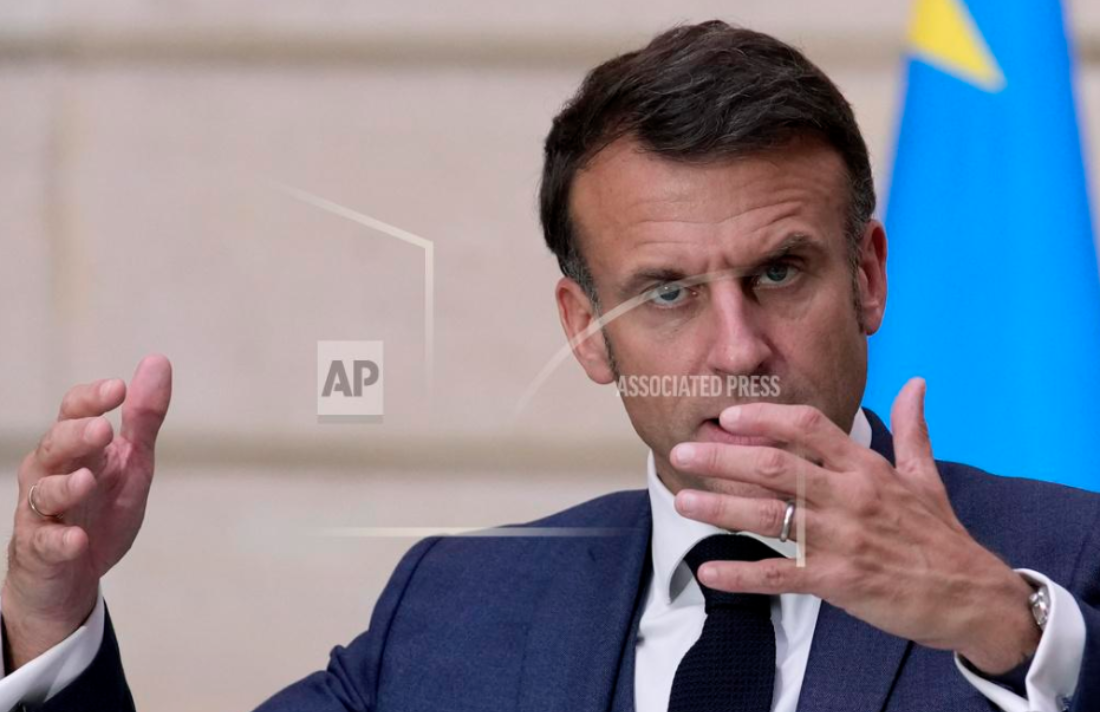

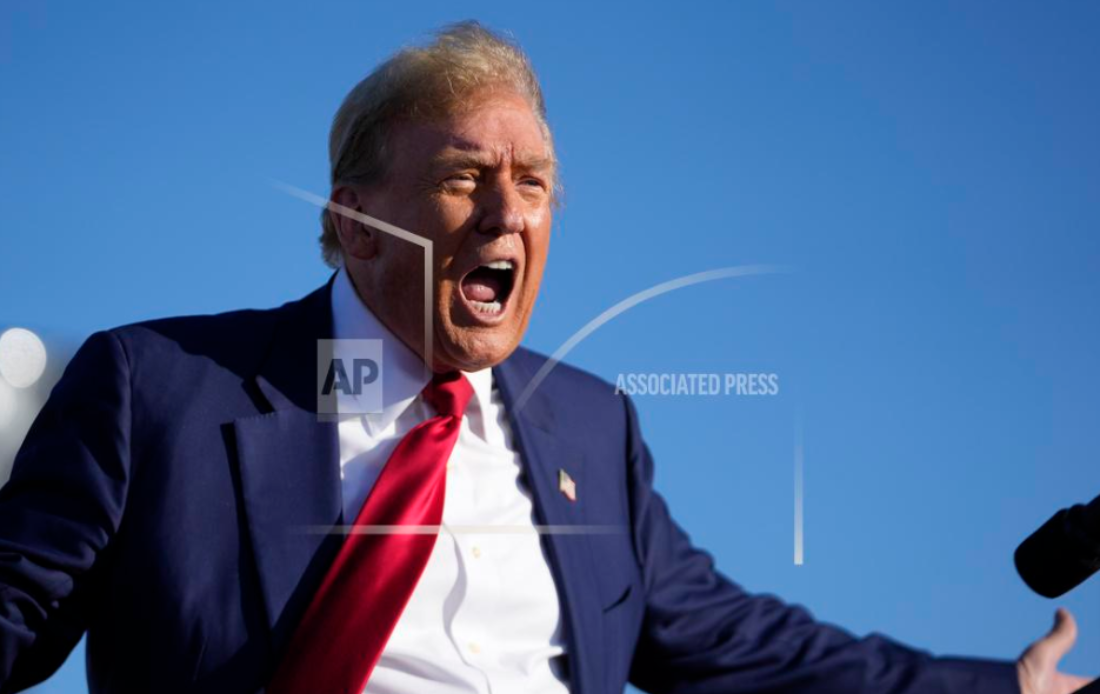

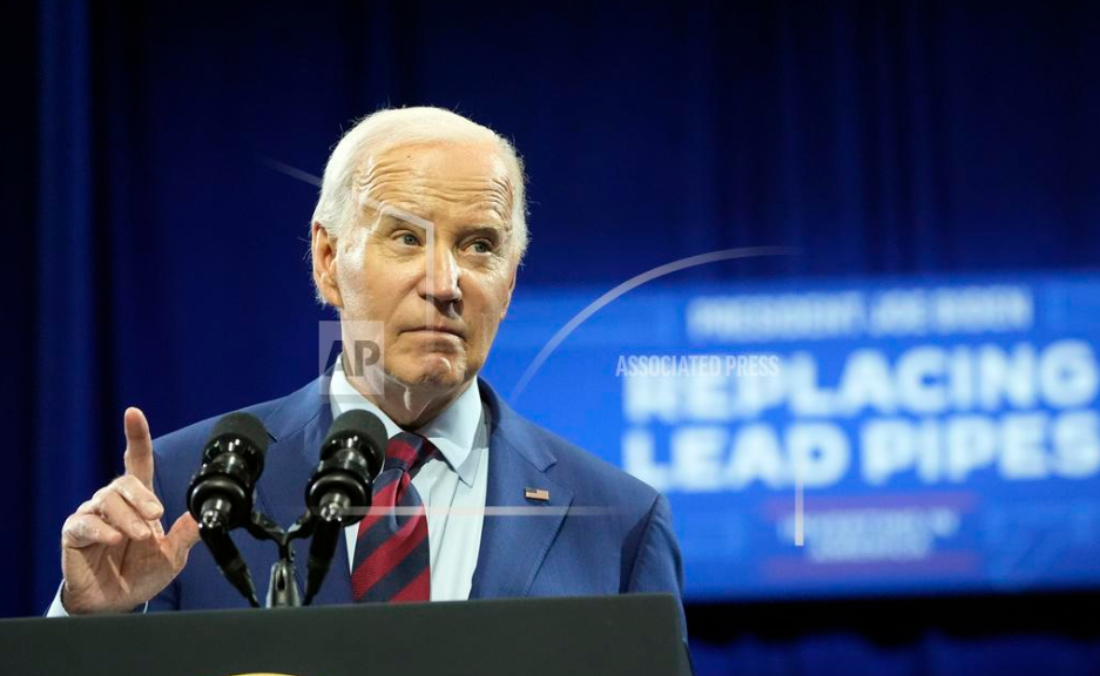
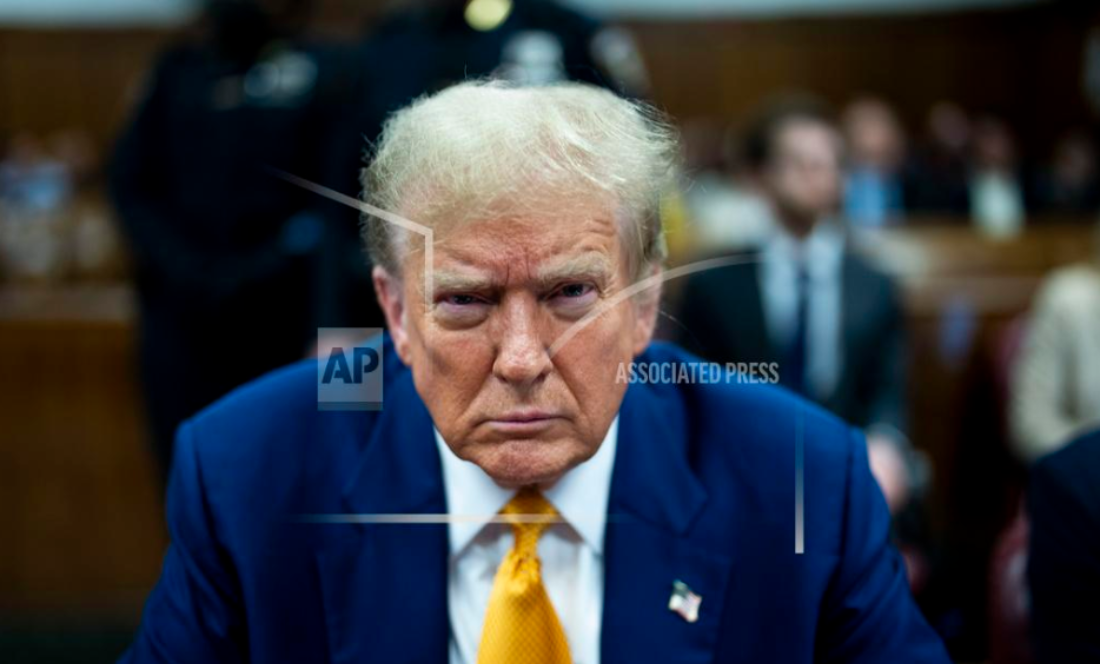

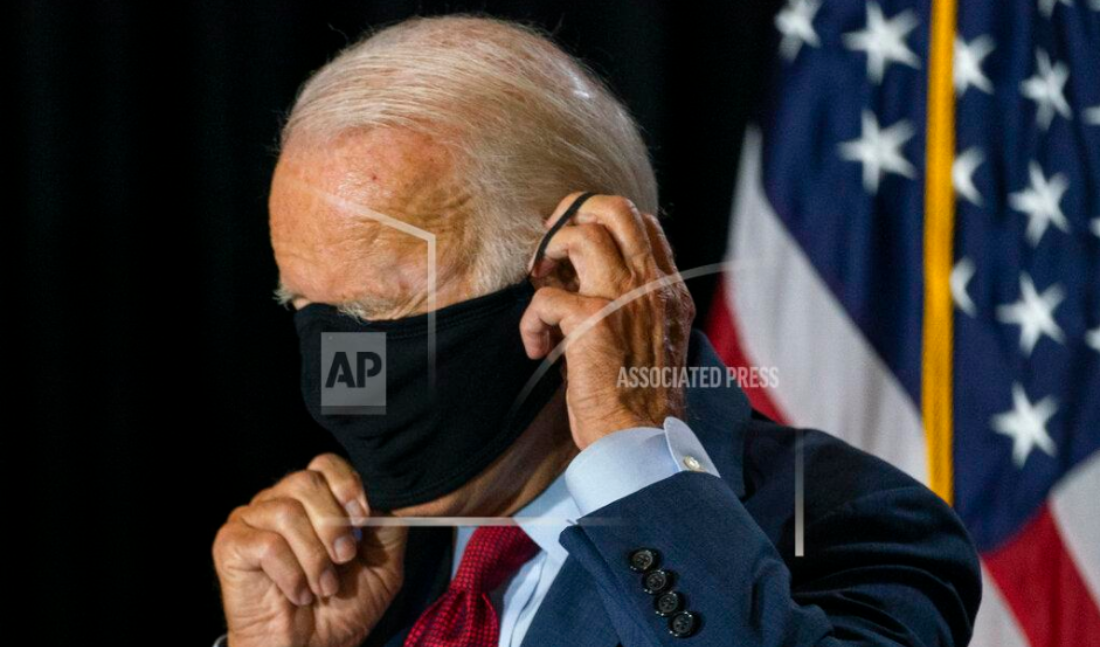
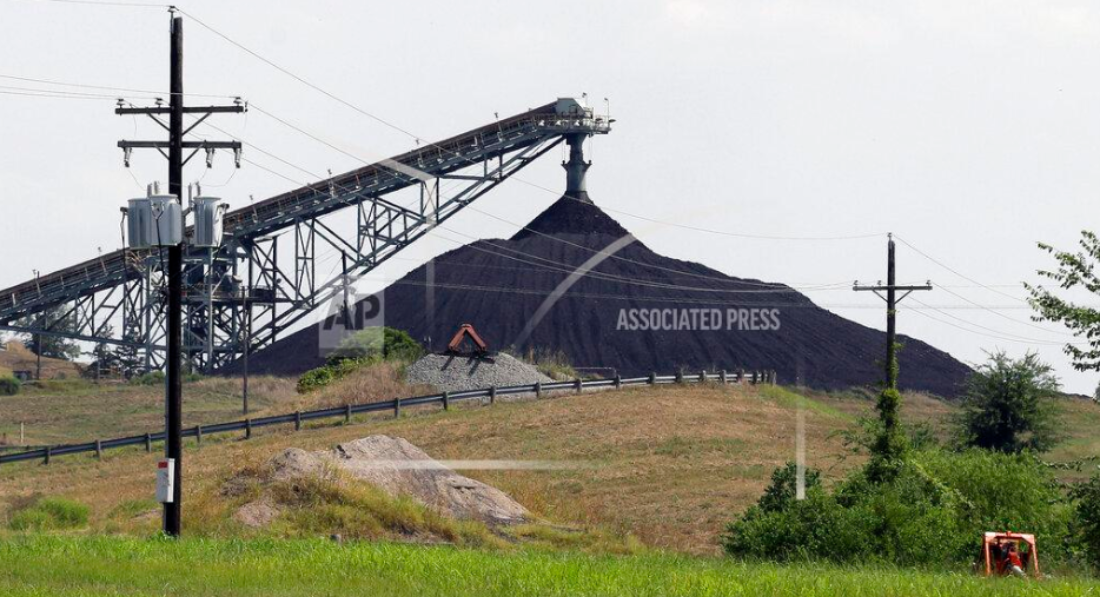




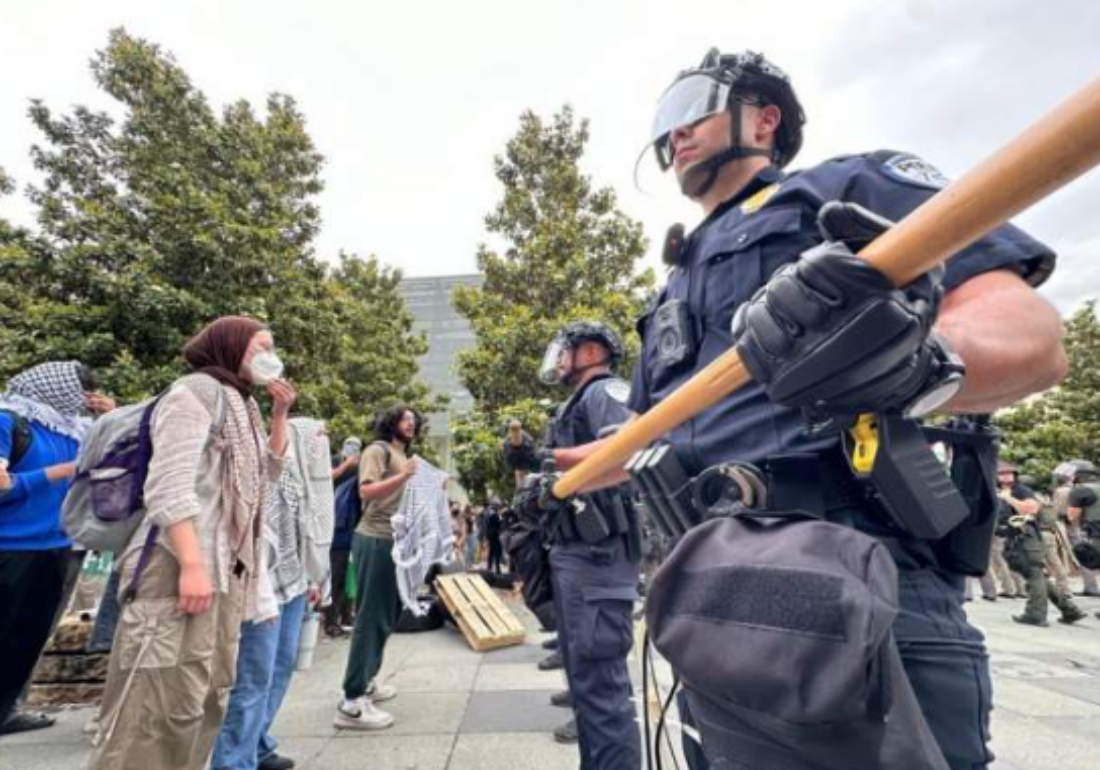
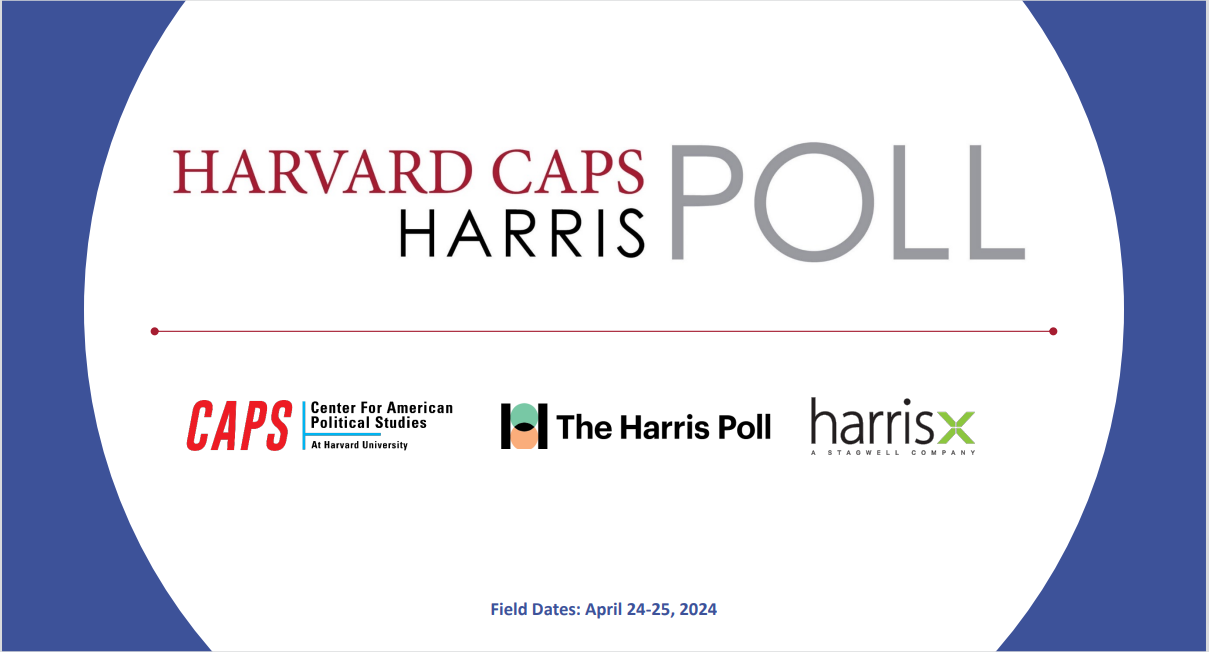

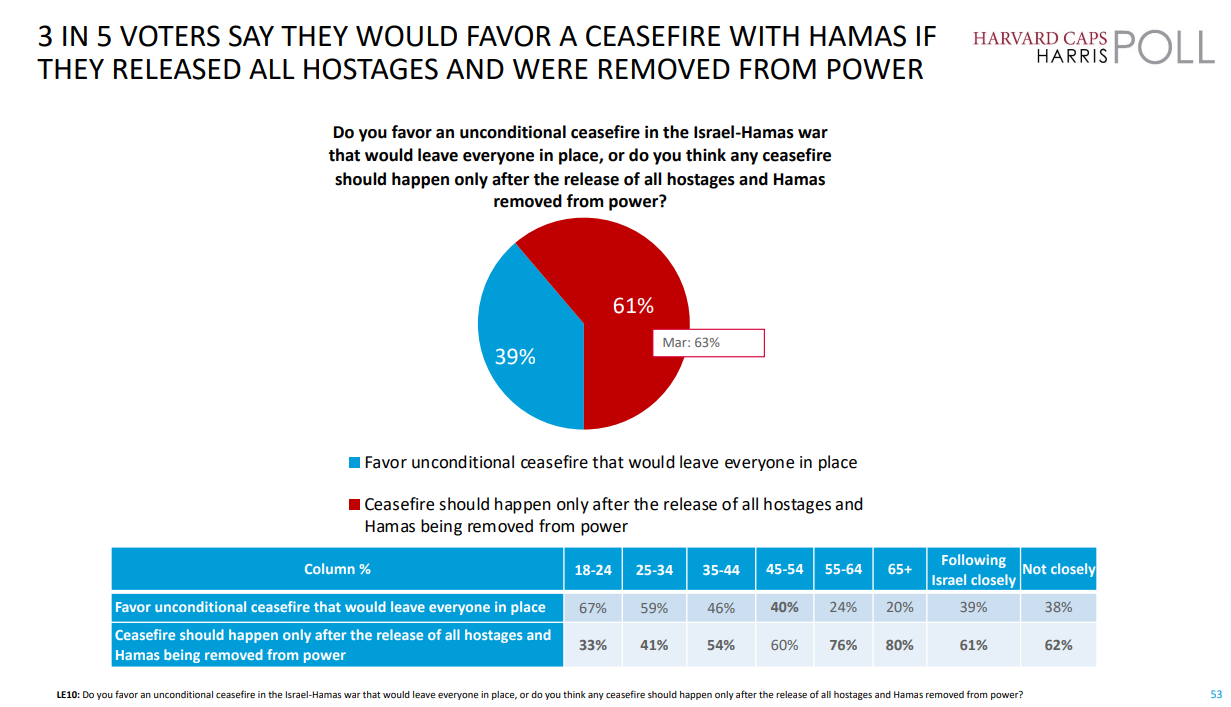

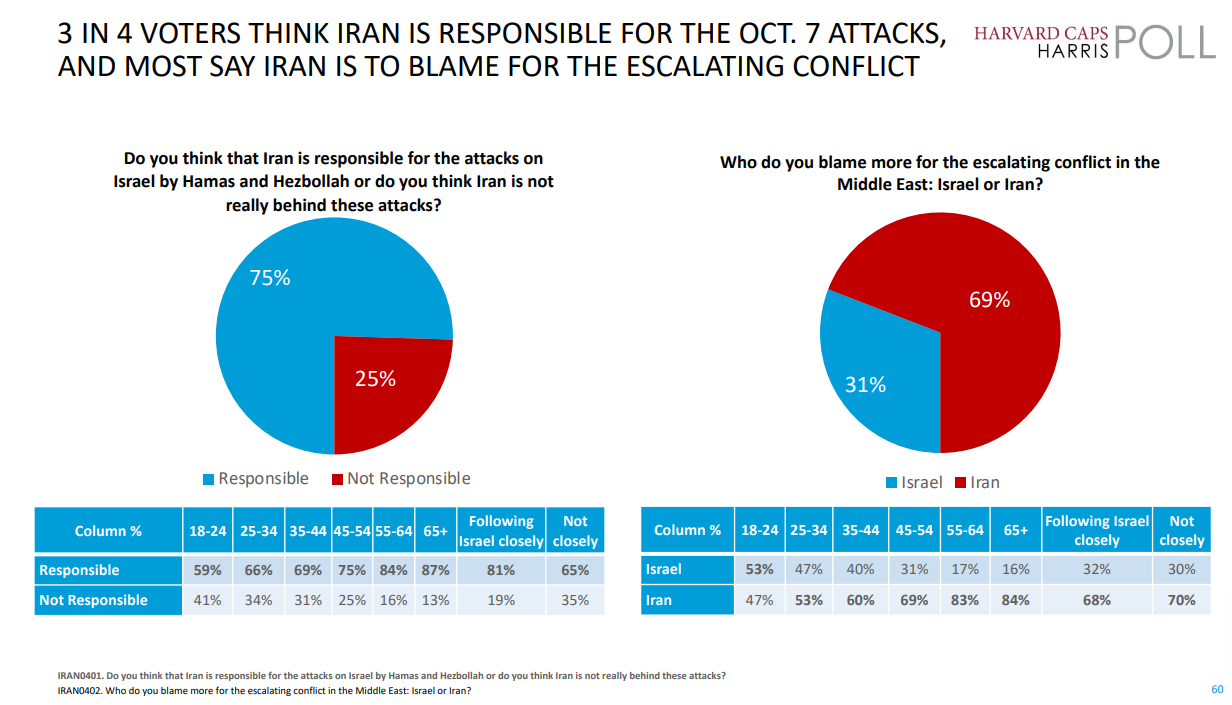
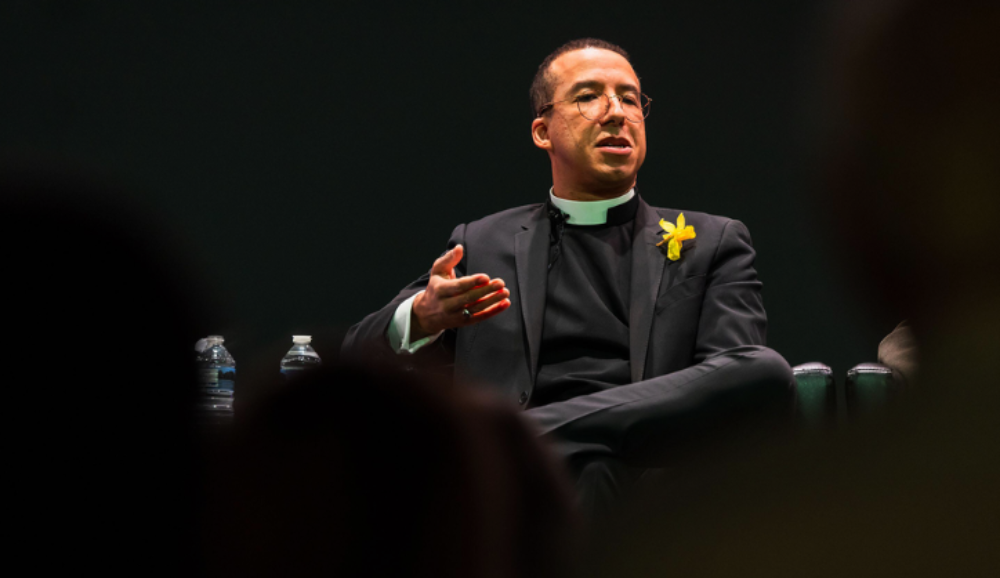
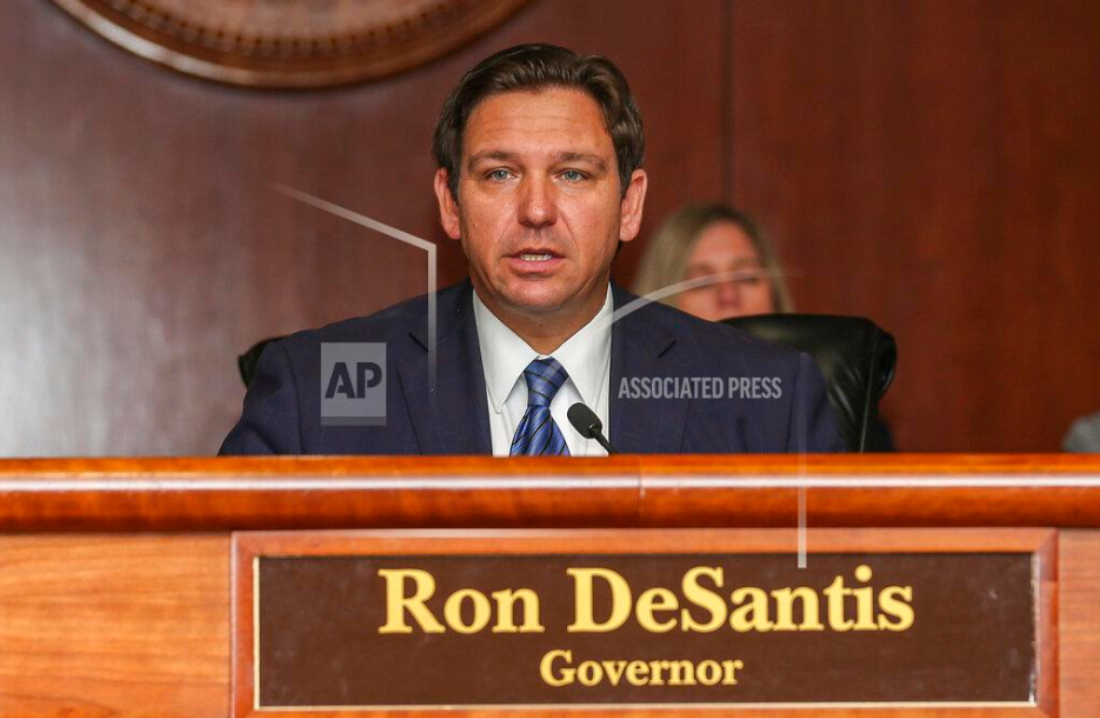
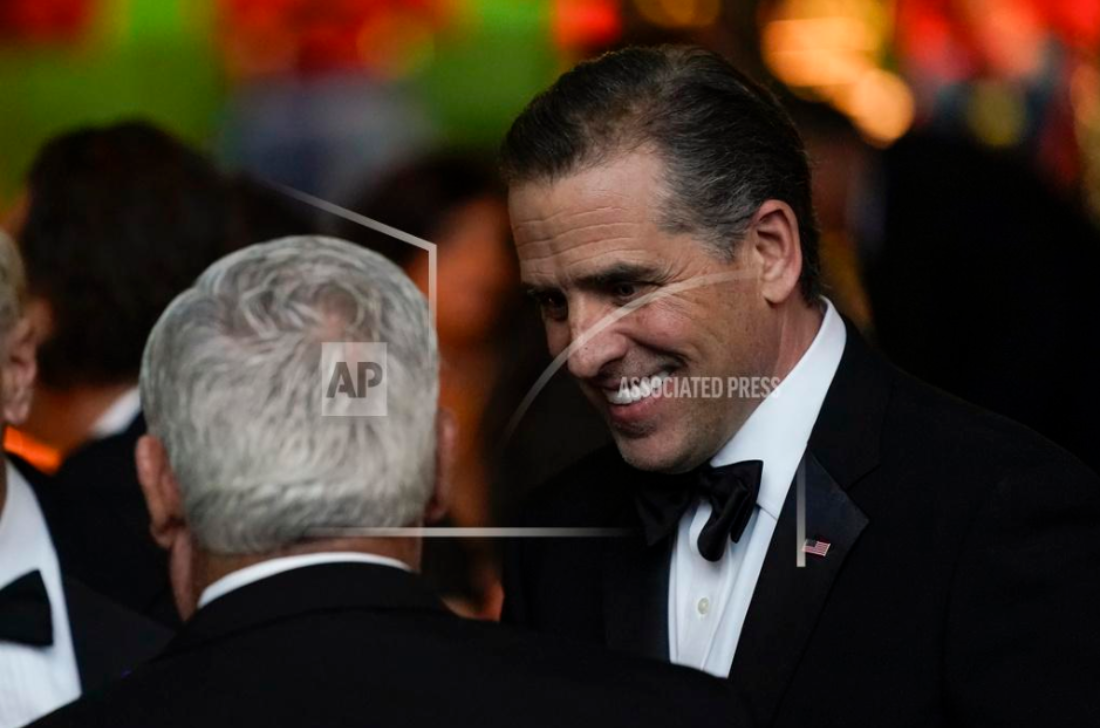
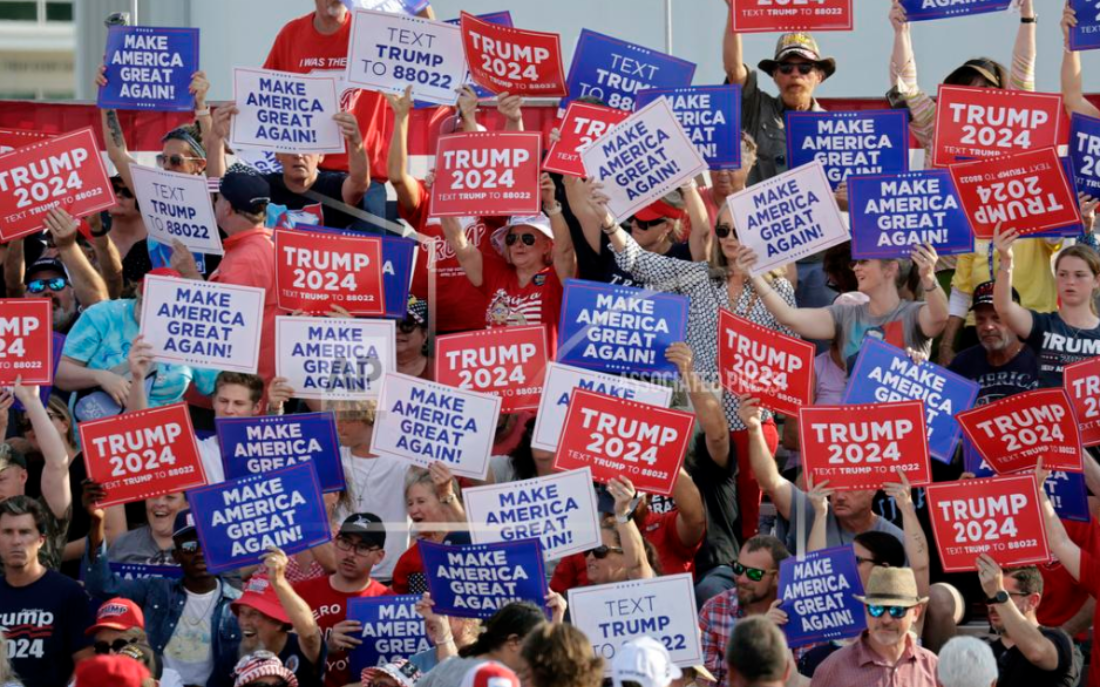
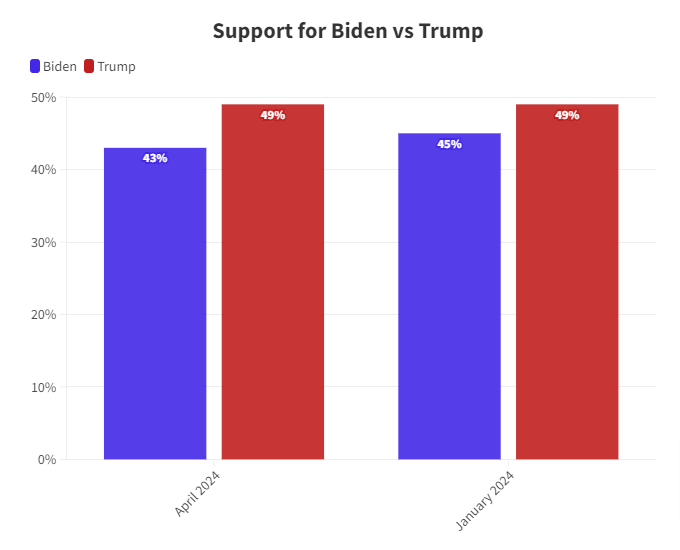
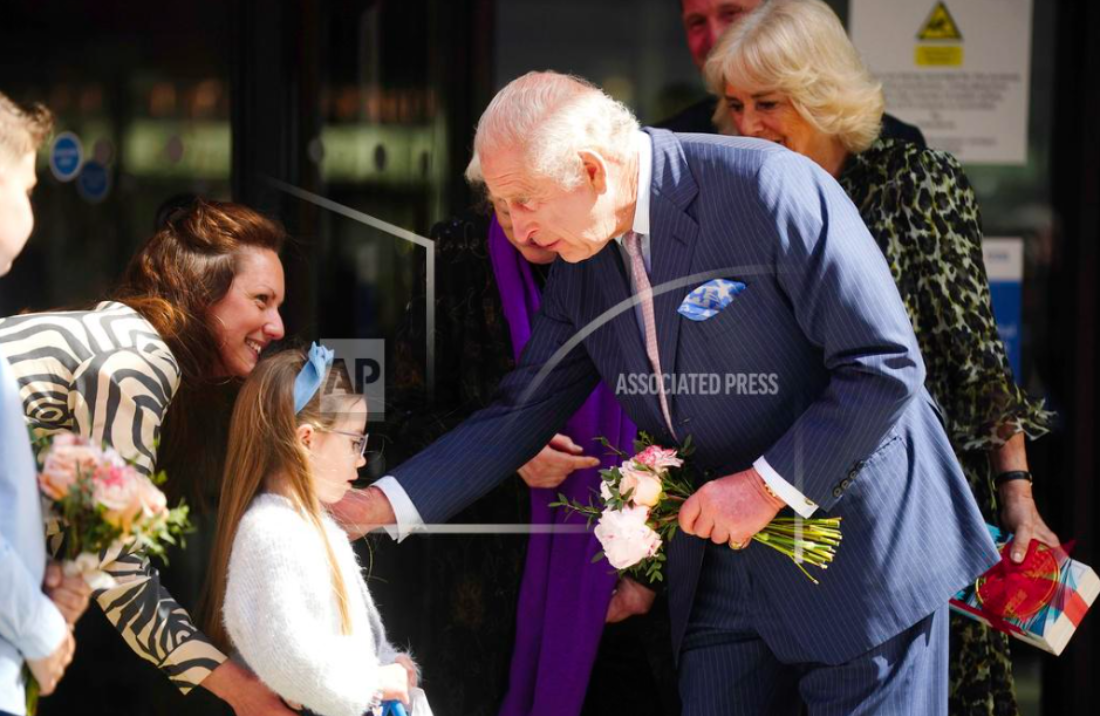
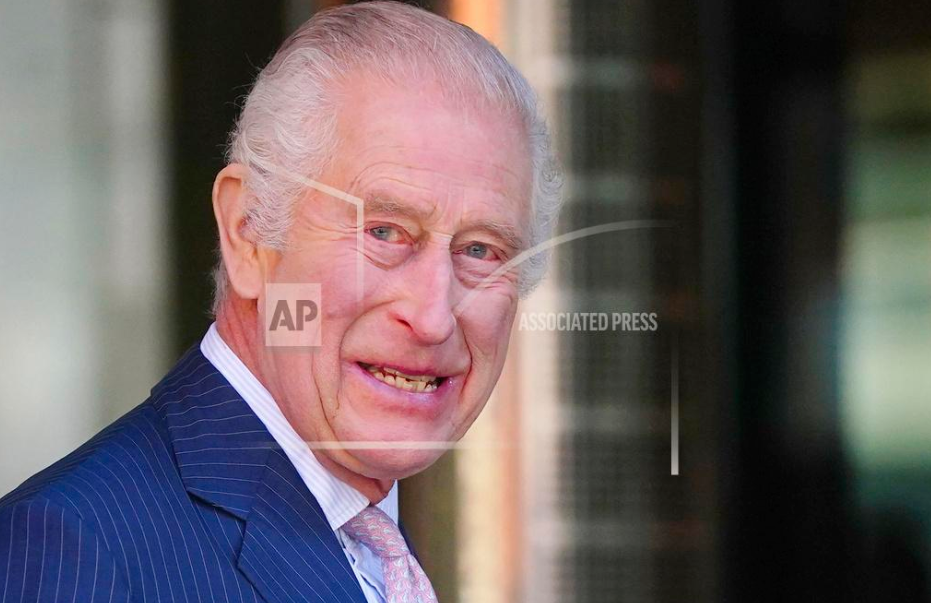
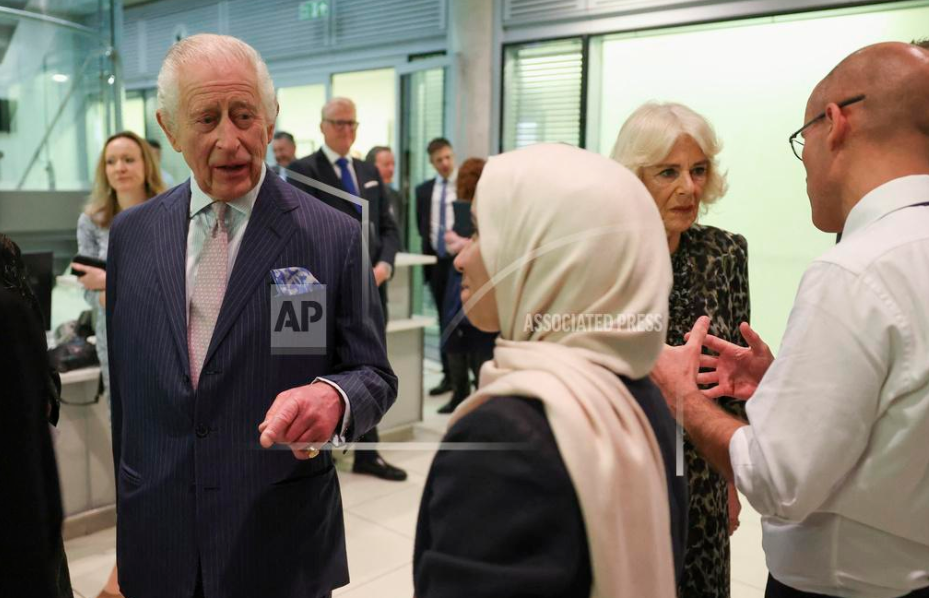


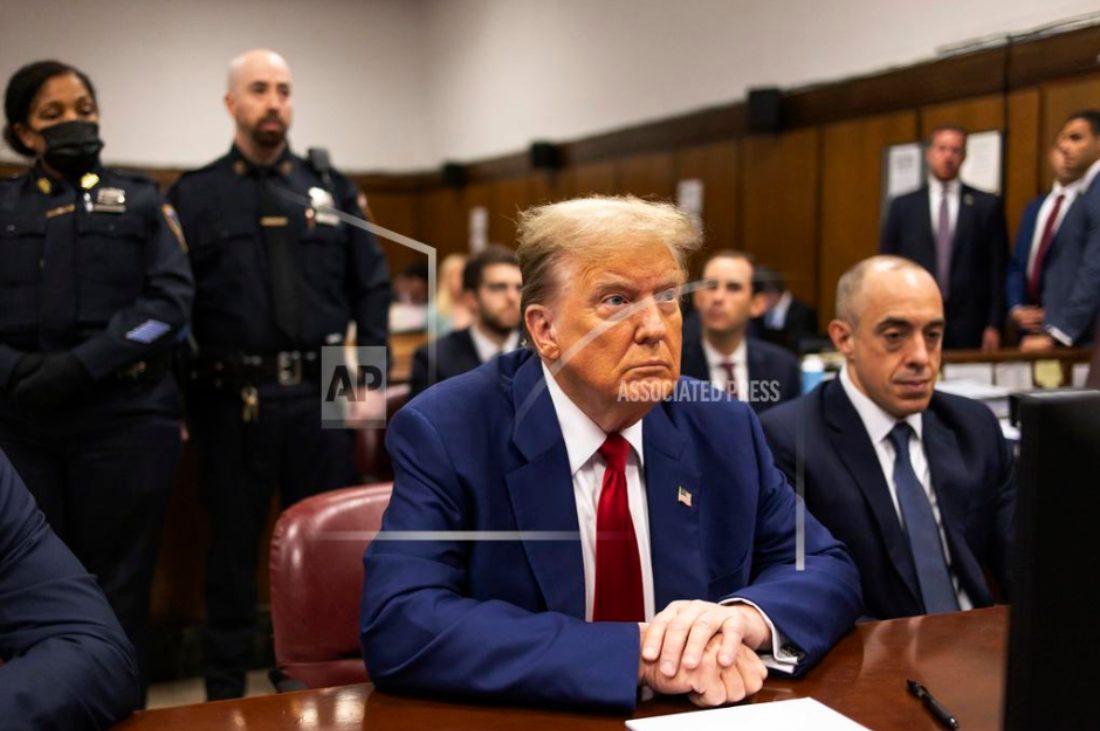
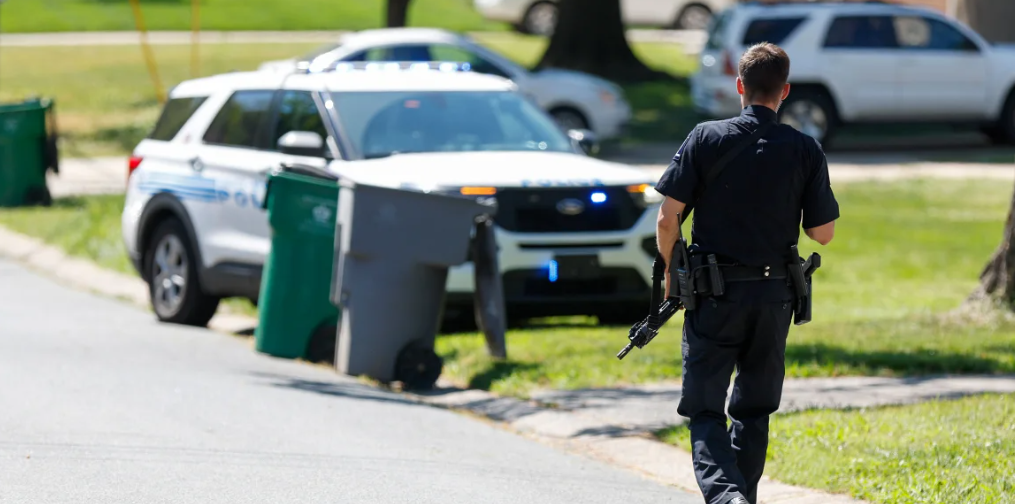
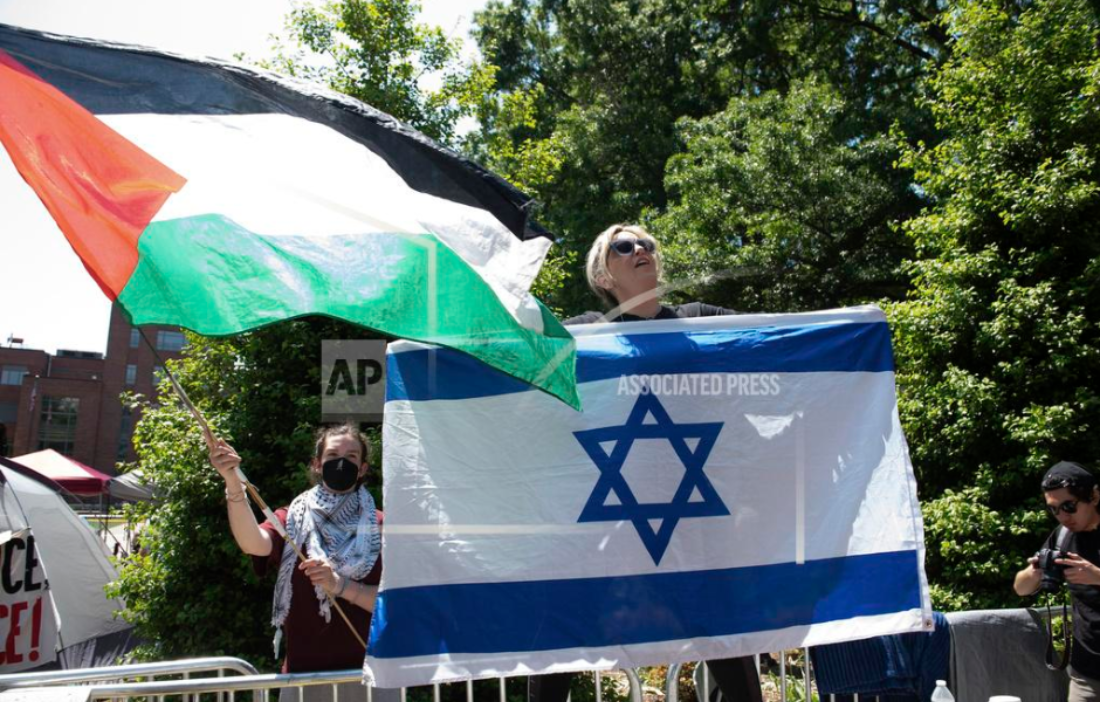
Conservative Anxiety Peaks Ahead of Crucial Local Elections
in World News
Posted
As voters in England and Wales prepare to cast their ballots in the upcoming local elections, the Conservative Party braces for what could be a pivotal moment in its political trajectory. These elections, set to take place on Thursday, are not just about choosing mayors and council members; they serve as a litmus test for the party's standing amidst a backdrop of persistent public dissatisfaction and daunting poll numbers.
Analysts and pundits are closely watching to see if the Conservatives can weather the storm or if their losses will exceed expectations, exacerbating existing concerns within the party. With the Labour Party consistently leading in the polls and the Conservatives facing a slew of challenges ranging from economic stagnation to healthcare crises, the stakes are high.
The prevailing question isn't whether the Conservatives will lose seats – that much seems inevitable according to pollsters – but rather, by how much. Experts suggest that if the party can limit its losses to under 500 council seats out of the 985 it's defending, it may be viewed as a tolerable setback by party loyalists. However, if Labour and other parties manage to seize more than 500 Tory seats, it could trigger a fresh wave of turmoil within the Conservative ranks, potentially even endangering Prime Minister Rishi Sunak's leadership.
While the 500-seat benchmark may seem arbitrary, it symbolizes a critical threshold in gauging the Conservatives' performance and their ability to retain public support. Local elections, particularly those held close to a general election, are influenced by intangible factors like momentum and public sentiment, making them highly consequential for political parties.
Amidst an atmosphere of palpable uncertainty, several key issues have emerged as focal points in the lead-up to the elections. Immigration and the Israel-Hamas conflict have garnered attention, with the Conservatives attempting to leverage these topics to their advantage. Prime Minister Sunak's controversial policy proposal to deport asylum seekers to Rwanda has resonated with the party's base, despite legal and logistical challenges casting doubt on its viability.
Additionally, Labour's handling of the Israel-Hamas conflict has stirred internal dissent within the party, particularly among Muslim communities. Leader Keir Starmer's cautious approach has left some feeling disillusioned, leading to defections and independent candidacies in traditionally Labour strongholds with sizable Muslim populations.
However, the outcome of local elections is not solely determined by national issues; local concerns such as infrastructure, public services, and housing also play a significant role. Moreover, the results of mayoral races in key regions like Tees Valley, the West Midlands, and London will offer insights into voter sentiment and party dynamics on a more localized level.
For Prime Minister Sunak and the Conservative Party, these local elections represent a critical juncture in their political journey. While victory in certain races could provide a much-needed boost, significant losses could spell further trouble for the beleaguered party leadership. As the countdown to Thursday's elections continues, all eyes are on England and Wales to see how the political landscape will unfold.
2024-05-03
Get our Daily Newsletter - Click HERE to subscribe